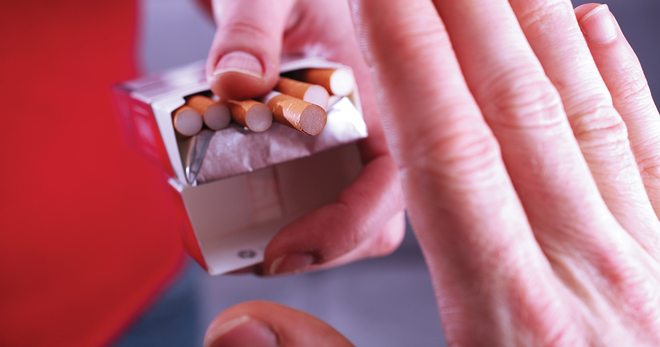Three ways to support loved ones while they quit smoking
If someone you care about is quitting tobacco, it can be difficult to know what to say and do.
BecomeAnEX, a digital quit smoking program by Truth Initiative®, has some tips courtesy of Dr. J. Taylor Hays, M.D., a professor of medicine at the Mayo Clinic College of Medicine and director of the Mayo Clinic’s Nicotine Dependence Center. BecomeAnEX was developed in collaboration with the Mayo Clinic.
“Being there for your loved one during this difficult time can be challenging. But it can make all the difference,” writes Dr. Hays in one of his weekly EX Community blog posts.
Here are three of Dr. Hays’ tips for supporting a quitter.
1. Be positive!
“Offer encouragement; affirm how proud you are of their effort,” writes Dr. Hays. He suggests giving extra attention to your loved one and planning something to celebrate his or her “commitment to living a healthier, tobacco-free life.”
What not to do: mention past failed attempts to quit smoking. It takes multiple quit attempts for many people to be successful, and “these past experiences are an important part of the learning process for becoming tobacco-free for good.”
2. Realize that adapting to life as a non-smoker means unexpected change.
People may have some expectations for what quitting will be like, but the experience brings up many unforeseen challenges. Dr. Hays: “Using tobacco fills many hours and is often used to cope with a variety of situations and emotions—from boredom, to stress, to anger, to joy. Your friend or family member is working to learn new methods of coping, and may be irritable, particularly during the early withdrawal period (up to a month following ending tobacco use).” Know that these challenges will subside over time. Try to be as understanding as possible.
3. Be open to how they feel you can be helpful.
In the residential treatment program for tobacco use at the Mayo Clinic, Dr. Hays and his colleagues invite family members to attend a session where the clinicians ask the family members what they do to be helpful. Then the clinicians ask the patients what families can do to be helpful. “The lists are often dramatically different,” writes Dr. Hays. “Try to create an atmosphere in which they can tell you what will be helpful.”
Dr. Hays authors a weekly blog to share information and guidance from his experience working with quitters at the Mayo Clinic, a world leader in tobacco dependence treatment. For more tips from Dr. Hays, visit his blog on BecomeAnEX.org, where people can also register to create a free quit plan and connect with current and former smokers in the EX Community.
More in quitting smoking / vaping
Want support quitting? Join EX Program
By clicking JOIN, you agree to the Terms, Text Message Terms and Privacy Policy.
Msg&Data rates may apply; msgs are automated.



